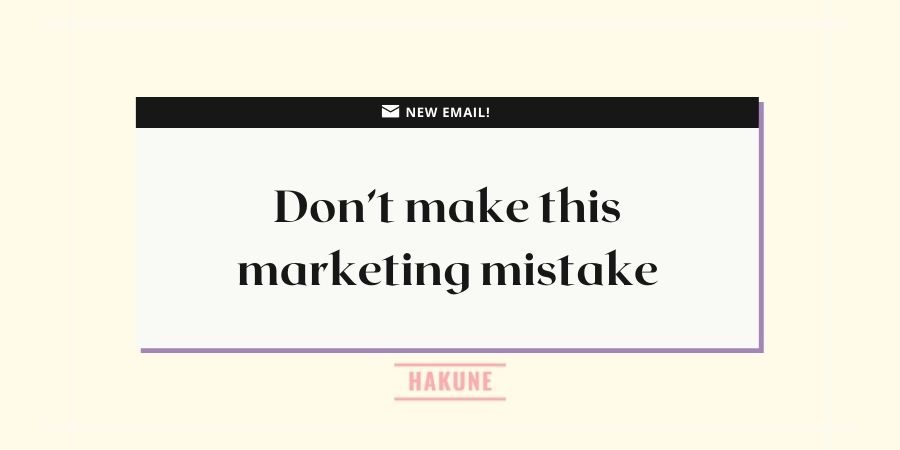
Avoid This Copy-Writing Mistake
There’s nothing worse than getting stuck in a conversation with someone who only talks about themselves. Yet soo many of us do this with our businesses.
When marketing your business, the number one mistake you can make is talking about yourself. Let me explain.
The point of marketing isn’t to tell people what you do; it’s to tell them what you can do for them.
No one cares that you’re a family-owned business established 136 years ago. No one cares that you’re the first open-source productivity tool. No one cares that you’re Brazil’s trusted fertilizer supplier.
They do care about what you can do for them.
You can think of the difference as features vs benefits. Features describe what you are. Benefits describe what your customer will gain.
Who would you rather sell your house?
1. The person who is a Male, 6’1, 85kg, realtor.
or
1. The person who can get you a cash sale, 10% above GV in less than 20 days.
See the difference here. On the left Apple is telling you what their product is. They’re telling you what it will do for you on the right.


A Low Effort Way To Build Momentum In Your Business
James Clear’s best-selling book atomic habits is a self-described revolutionary guide to using tiny changes in behaviour to transform your life.
One of the book’s main ideas is this thing called habit stacking. Which is where you connect new behaviours to old ones to build momentum.
For example, let’s say you decide you need to drink more water and you have a morning coffee ritual. You can add a new behaviour (drinking a glass of water while the jug boils) to your old one (making a coffee) to help you get more hydrated.
Then you might decide to drink that coffee outside to get an early morning vitamin D dose (which is proven to help you sleep better).
By attaching two new behaviours to your old ingrained behaviour, you’ve meaningfully improved your health with little effort. This is the beauty of habit stacking.
This works so well because you’re not starting new habits from scratch. They just become part of an existing habit that your brain is already wired to complete. Which requires way less discipline & effort.
You can use the same framework to build momentum in your business.
For example, Say you already send new customers a post-purchase thankyou email. You could create momentum by sending a second follow-up email offering them a discount on their next visit. Which might generate a 10% – 30% increase in revenue per customer for minimal additional effort.
Or instead of running team meetings and leaving the discussion at the table. At the end of each team meeting, you could send a summary/follow-up email with everyone’s agreed actions post-meeting. That little additional effort attached to an already ingrained company behaviour might result in a 25% increase in completed work.
The habit stacking formula is:
After/Before [CURRENT HABIT], I will [NEW HABIT].
So look at your existing business habits and behaviours and think of ways to leverage them to get better results with simple, low effort additional actions.
“Movements are what take five or ten percent of people and make them decisive—because in a world where apathy rules, five or ten percent is an enormous number.”
~ Bill McKibben
Where We’re Learning
• Habit Stacking-> This is the full explanation of habit stacking in James Clear words. He even uses neurologically to explain why this technique is so effective.

Why Doing Nothing Is Important
Work hard, hustle, be more productive, blah blah blah.
All well-intentioned good advice for most circumstances.
But if you think about the moments that have added the most value to your business. I bet many of these are thoughts sprung to mind while sitting on the toilet, taking a shower or going for a long walk.
Well, that’s been my experience, at least.
These moments give us space to think; they’re the exact opposite of doing. And we need them to create.
We need space to create.
If the number one job as founders slash operators of our businesses is to add value. Then our most important calendar appointments might be the ones where we purposefully do nothing.
I take my moments of nothing in the form of a morning walk in nature. What’s yours?



One comment
Pingbacks and Tracebacks
[…] episode #22, we talked about creating space in your day so you have time to think and ideate to foster […]